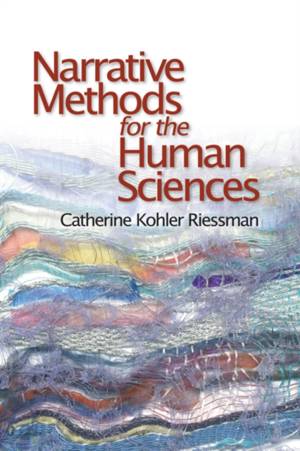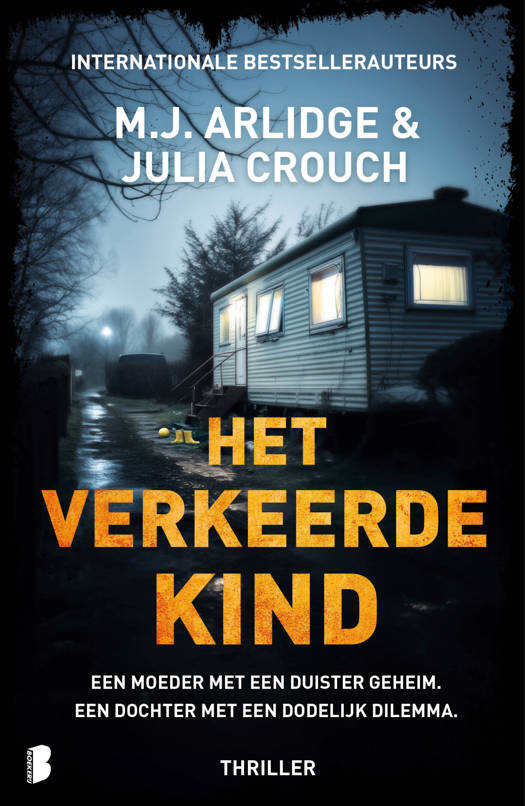
- Afhalen na 1 uur in een winkel met voorraad
- Gratis thuislevering in België vanaf € 30
- Ruim aanbod met 7 miljoen producten
- Afhalen na 1 uur in een winkel met voorraad
- Gratis thuislevering in België vanaf € 30
- Ruim aanbod met 7 miljoen producten
Omschrijving
"Cathy Riessman is the leading figure in narrative research and her new book is a delight. Covering basic issues of transcription and research credibility as well as visual data and engagingly written, it is a goldmine for students and researchers alike. If we want to make narrative research serious and revealing, it is to this book that we should turn."
--David Silverman, Professor Emeritus, Goldsmiths′ College, University of London
"Narrative Methods for the Human Sciences provides an accessible framework for researchers -- to analyse narrative texts with confidence, empathy, and humility.
--NARRATIVE INQUIRY
"This is a terrific book. Cathy Riessman has an encyclopedic knowledge of this field and of the participants in it. This breadth and depth of knowledge is abundantly clear throughout the book."
--Susan Bell, Bowdoin College
"This book has been a great source of inspiration to me and my students, not only for its methodological clarity, but also for the spirit of social activism it engenders."
--Ian Baptiste, The Pennsylvania State University
"Narrative Methods for the Human Sciences is an essential starting point for both students and experienced researchers interested in using narrative analysis in applied or other contexts. Written with admirable clarity, an engaging style, and supported by detailed examples of analysis, the book outlines the main methodological issues and approaches within the exciting and fast-developing field of narrative research. Even researchers already familiar with narrative methods should find the presentation of thematic, structural, dialogic/performance, and visual forms of analysis a fruitful stimulus to new research endeavours."
--Brian Roberts, University of Central Lancashire, U.K.
"I just had to thank you for paving the path for us new and ′hopeful′ narrative researchers. I have been a student of both your books on narrative analysis, and want to thank you for your guidance from your work, and also your latest book Narrative Methods for the Human Sciences. This work and the references you have chosen for us have helped me immensely during this time in my doctoral program, especially as I enter into the analysis phase."
--Maria T. Yelle, nursing doctoral candidate, University of Wisconsin-Madison
Narrative Methods for the Human Sciences provides a lively overview of research based on constructing and interpreting narrative. Designed to improve research practice, it gives a detailed discussion of four analytic methods that students can adapt. Author Catherine Kohler Riessman explains how to conduct the four kinds of narrative analysis using model studies from sociology, anthropology, psychology, education and nursing. Throughout the book, she compares different approaches including thematic analysis, structural analysis, dialogic/performance analysis, and visual narrative analysis. The book helps students confront specific issues in their research practice, including how to construct a transcript in an interview study; complexities of working with materials translated from another language; defining narrative segments; relating text and context; locating oneself as the researcher in a responsible way in an inquiry; and arguing for the credibility of the case-based approach.
Broad in scope, Narrative Methods for the Human Sciences also offers concrete guidance in individual chapters for students and established scholars wanting to join the "narrative turn" in social research.
Key Features
- Focuses on four particular methods of narrative analysis: This text provides specific diverse exemplars of good narrative research, as practiced in several social science and human service disciplines.
- Offers guidance for narrative interviewing: The author discusses the complexities between spoken language and any written transcript. In the process, she encourages students to be mindful of the texts they construct from dialogues among speakers.
- Presents arguments about validation in case-based research: Riessman presents several ways to think about credibility in narrative studies, contextualizing validity in relation to epistemology and theoretical orientation of a study.
- Explores the differences between grounded theory methods and narrative analysis: The author clarifies distinctions between inductive thematic coding in grounded theory, and other interpretive approaches, and narrative analysis.
- Presents social linguistic methods for analyzing oral narrative: This text makes the approach accessible to readers not trained in social linguistics in part by providing rich examples from a number of different disciplines in the social and behavioral sciences.
- Employs visual methods of analysis: Riessman takes narrative research beyond the spoken or written texts by showing how exemplary researchers have connected participants′ words and images made during the research process. She also discusses other research that incorporates "found" images (in archives) in a narrative inquiry.
This text is designed as a supplement to the qualitative research course taught in graduate departments across the social and behavioral sciences, and as a core book in the narrative course.
Specificaties
Betrokkenen
- Auteur(s):
- Uitgeverij:
Inhoud
- Aantal bladzijden:
- 264
- Taal:
- Engels
Eigenschappen
- Productcode (EAN):
- 9780761929970
- Verschijningsdatum:
- 17/12/2007
- Uitvoering:
- Hardcover
- Formaat:
- Genaaid
- Afmetingen:
- 163 mm x 231 mm
- Gewicht:
- 476 g

Alleen bij Standaard Boekhandel
Beoordelingen
We publiceren alleen reviews die voldoen aan de voorwaarden voor reviews. Bekijk onze voorwaarden voor reviews.











